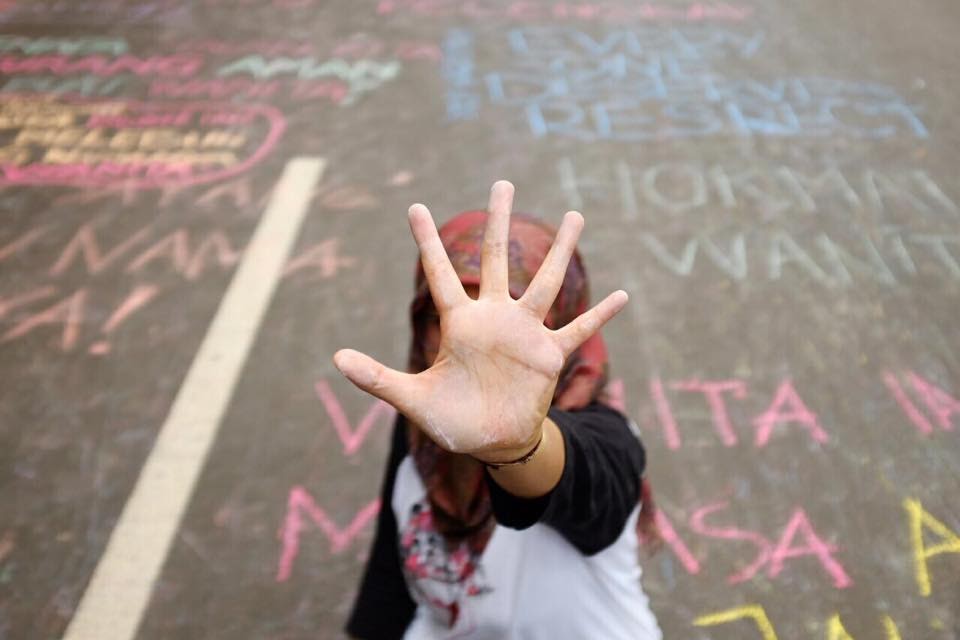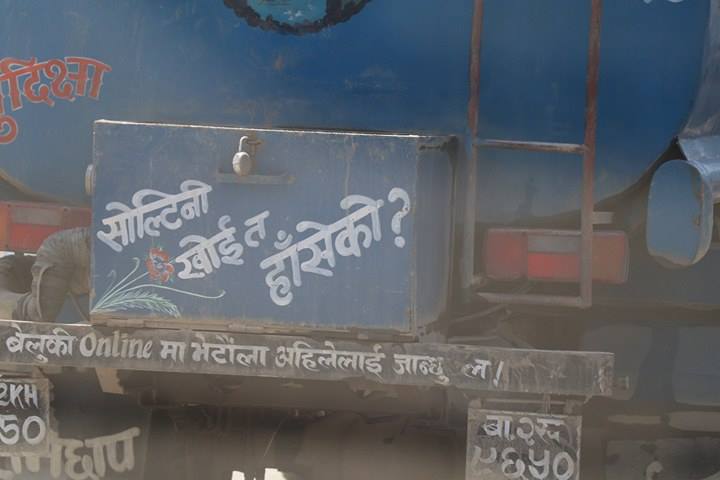Astrid Nikijuluw, Serpong, Banten, Indonesia SSH Blog Correspondent
(English version below)

Catcalling di negara saya merupakan hal yang ‘biasa’ terjadi sehari-hari. Saking biasanya sampai terkadang menjadi hal yang ‘dimaklumi’. Terlepas dari apa yang dirasakan para korban yang kebanyakan adalah wanita. Dulu saya suka berpikir bahwa hal itu terjadi karena hal-hal yang disebabkan oleh kita sendiri seperti misalnya cara berpakaian. Namun ternyata tidak peduli gaya berpakaian kita, catcalling tetap saja berlaku.
Buat saya pribadi, perlakuan seperti catcalling atau street harassment adalah perlakuan yang sangat mengintimidasi. Dari merasa terintimidasi akan berkembang menjadi rasa takut. Padahal semua orang berhak untuk merasa aman apabila berjalan di jalan-jalan umum dan juga tempat-tempat umum lainnya. Sayangnya hal ini belum terjadi. Masih banyak para wanita yang merasa risih atau takut apabila harus berjalan melewati kerumunan para lelaki. Yang akhirnya membuat mereka mengurungkan niatnya ataupun mengambil jalan lain yang lebih jauh namun dianggap lebih aman.
Ada cerita tentang seorang anak perempuan yang selalu diminta oleh ibunya ke pasar untuk membelikan keperluan kakak perempuannya. Sang ibu merasa tidak aman kalau sang kakak ke pasar sendirian karena banyaknya perlakuan yang tidak menyenangkan dari para lelaki di seputar pasar tersebut. Anak perempuan ini memang memiliki postur seperti lelaki dengan rambutnya yang dipotong pendek dan gaya berpakaian ala lelaki dengan kaos longgar dan celana pendek atau celana panjang jeans. Sedangkan kakaknya adalah sosok feminine dengan rambut panjang dan wajah manis yang bisa sangat mungkin untuk di goda. Setelah dewasa dia pun mengakui bahwa alasan dia bergaya seperti lelaki itu adalah untuk menghindari perlakuan street harassment. Sedangkan sang kakak justru merasa bahwa dia tidak perlu harus ‘dilindungi’, dia bisa melakukannya sendiri. Rasanya seperti sesuatu yang bagus bukan? Tetapi sayangnya tidak. Sang kakak merasa begitu karena menurut dia hal seperti street harassment adalah hal umum atau wajar terjadi apabila pergi ke tempat-tempat umum seperti pasar tradisional. Sehingga timbul pemikiran “cuekin aja”. Padahal mereka berdua sama-sama tidak setuju dan menentang perlakuan tersebut.
Berdasarkan cerita diatas, saya merasa bahwa mereka berdua sama-sama mengalami psychological effect dari perlakuan street harassment tersebut. Hanya dengan reaksi yang berbeda. Apapun itu, adalah satu hal yang jelas bahwa perlakuan seperti ini tidak dapat diterima. Efek yang ditimbulkan kepada para korban mungkin tidak terlalu ketara dan hal inilah yang membuat catcalling masih merajalela dari sejak jaman dahulu sampai generasi milenial saat ini. Apakah untuk menghindari perlakuan ini kita harus bergaya seperti lelaki? Mensugesti diri bahwa ini biasa sehingga “cuekin aja”? Atau mengambil jalan lain yang lebih aman walaupun jauh?
Sayangnya hal seperti street harassment ini masih kurang mendapat perhatian masyarakat. Isunya belum seramai dibicarakan seperti LGBT, KDRT (Kekerasan Dalam Rumah Tangga) dan kasus sexual harassment lainnya. Padahal hal ini lebih sering terjadi dan bisa dibilang kejadian sehari-hari. Saya ingat ada satu ungkapan yang berbunyi kira-kira seperti ini “dosa apabila sudah sering dilakukan akan terasa bukan lagi dosa”. Saya rasa ungkapan ini sangat tepat menggambarkan perlakuan street harassment. Terlalu sering dilakukan sehingga seolah-olah sudah diterima menjadi bagian dari kejadian sehari-hari. Padahal tidak. Perlakuan ini sangat mengganggu dan menimbulkan efek psikologis bagi korban. Pertanyaannya adalah sampai kapan kita akan membiarkan hal ini berlangsung? Pemikiran sederhana yang masih sulit untuk dijawab saat ini.
Astrid received her Bachelors of Business at Queensland University of Technology Brisbane Australia. She finished her Master’s Degree at Gadjah Mada University Yogyakarta where she majored in Human Resource Development. Follow her on Twitter at @AstridNiki or on Facebook.
In my country, catcalling is considered a ‘usual’ daily thing, so usual, in fact, that it is seen as ‘ok’ to do even though the victims, usually women, do not like it. I used to think that this thing happened because of the way we dressed. But in fact, no matter how you try to dress yourself, catcalling can still happen to you.
To me, catcalling, or street harassment, is intimidating and that intimidation can even turn into fear. Even though every single individual should have the right to feel safe while walking on the street and public places, unfortunately this kind of thing has not yet happened. Many women still feel uncomfortable or scared if they have to walk past some crowd of men. This fear may cause them to not walk past them or prompt them to take another way which is further, but is considered safer for them.
There is a story about a young girl who was always asked by her mother to go to the traditional market and to accompany her sister. The mother felt it was too unsafe for the sister to go to the market by herself because of the inappropriate behavior from some men who hang-out in the market. This young girl had a very masculine appearance, such as having short hair and wearing loose t-shirts and jeans, but her sister presented in a feminine way, like with long straight hair. Later when this young girl had become an adult, she admitted that the reason she dressed like a boy was to avoid street harassment, while her sister felt that she did not need any ‘protection’, and she could do it on her own. In her opinion, street harassment is a common thing that happens, especially in public places such as traditional markets. This leads to a thought of “I don’t give a damn”, while in fact both of them are disagree and against this kind of behavior.
Based on the story above, I feel that both of them are having a psychological response to street harassment, just different ones. Whatever it is, it is still very clear that these kinds of actions are not acceptable. In order to avoid such disturbing behavior, do we have to change our style like a man? Or just accept it and say, “I don’t give a damn? Or go out of our way to take safer though further routes?
Unfortunately, there is a lack of attention in our society to street harassment. The issue does not receive as much attention as LGBT rights, domestic violence, and other types of sexual harassment even though it often happens in our everyday life. I remember a phrase that says, “a sin if constantly repeated is not considered as a sin anymore”. I think this phrase fits the street harassment behavior. Too often it is repeated as if it is ‘accepted’ as a ‘usual’ everyday behavior. Frankly no! This behavior can have a negative psychological effect on the victim. The question is, for how long will we allow this street harassment to occur? This is a simple thought yet currently it still is difficult to answer.

